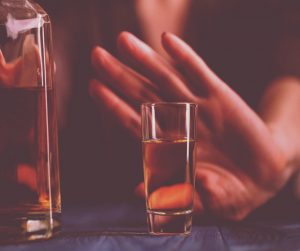[vc_row][vc_column][vc_cta h2="Help Is Only A Phone Call Away" txt_align="center" shape="round" style="flat" color="vista-blue" el_width="sm" use_custom_fonts_h2="true" use_custom_fonts_h4="true"]Call Now 855-227-9535[/vc_cta] All forms of addiction are dangerous. Drug addiction and alcohol addiction are two of the most common types that affect a large portion of the population. Everywhere in the world, it’s considered an epidemic. Alcohol abuse can be hard to recognize because people drink casually all the time. We don’t know who’s just having fun and who actually has a drinking problem. This is not applicable to substance abusers who take their medications recreationally, because the signs of addiction are obvious. But whether it is obvious or not, the fact remains that addiction must be treated. Pay close attention to your loved one if you think they are drinking a little too much. Alcohol addiction is deadly if the person does not get proper medical attention. And so there are many prescription drugs given to help fight the effects of addiction and alcohol dependence. Naltrexone is one of them. On this article, we will be focusing on how Naltrexone helps people who are struggling with alcoholism. Does it help at all? And how does it work? As a prescription drug, what does it do? Let’s find out.
Naltrexone Overview
 Naltrexone is primarily used in the continued management of alcohol dependence and opioid addiction. How it helps in each case may differ depending on the patient’s condition. Take note that we said “continued management” instead of treatment, because Naltrexone does not treat alcoholism per se. In order to fully beat alcohol addiction, a comprehensive treatment program is necessary. Naltrexone will only serve as one of the important components of that process. It is not the “cure” to alcoholism. In fact, it does not help against alcohol dependence at all. If you take Naltrexone and you are still drinking or abusing drugs, you will go into withdrawal. But if you have been sober for a while, your doctor might give you Naltrexone in order to help quell your desire to drink and keep your cravings under control. That is where Naltrexone shines. This substance is actually classified as an opioid antagonist. This means it works by attaching to certain receptors in the brain and blocking the euphoric effects of substances like opioids and opiates. This keeps people from getting high on those substances. If you’ve been alcohol-free for a while, Naltrexone may be prescribed to help you stay that way. It reduces the cravings you may feel every now and then. Alcohol-dependent individuals will be familiar with this dilemma. [maxbutton id="3" ] Naltrexone is well known for its safety profile. It will not get you high, unlike many other prescription medications. But there are side effects to watch out for. They may occur in some cases, but the risk of encountering side effects only increases if you take the drug in large doses—which you should not. Common side effects include nausea, diarrhea, vomiting, skin rash, stomach pain, drowsiness, anxiety, and muscle pain. In rare occasions, the drug may cause hallucinations. Naltrexone works best when used properly. Take it exactly as your doctor prescribed to make sure you get only the best results. Talk to them if you experience any of the side effects while taking this drug, or if you are allergic to the substance.
Naltrexone is primarily used in the continued management of alcohol dependence and opioid addiction. How it helps in each case may differ depending on the patient’s condition. Take note that we said “continued management” instead of treatment, because Naltrexone does not treat alcoholism per se. In order to fully beat alcohol addiction, a comprehensive treatment program is necessary. Naltrexone will only serve as one of the important components of that process. It is not the “cure” to alcoholism. In fact, it does not help against alcohol dependence at all. If you take Naltrexone and you are still drinking or abusing drugs, you will go into withdrawal. But if you have been sober for a while, your doctor might give you Naltrexone in order to help quell your desire to drink and keep your cravings under control. That is where Naltrexone shines. This substance is actually classified as an opioid antagonist. This means it works by attaching to certain receptors in the brain and blocking the euphoric effects of substances like opioids and opiates. This keeps people from getting high on those substances. If you’ve been alcohol-free for a while, Naltrexone may be prescribed to help you stay that way. It reduces the cravings you may feel every now and then. Alcohol-dependent individuals will be familiar with this dilemma. [maxbutton id="3" ] Naltrexone is well known for its safety profile. It will not get you high, unlike many other prescription medications. But there are side effects to watch out for. They may occur in some cases, but the risk of encountering side effects only increases if you take the drug in large doses—which you should not. Common side effects include nausea, diarrhea, vomiting, skin rash, stomach pain, drowsiness, anxiety, and muscle pain. In rare occasions, the drug may cause hallucinations. Naltrexone works best when used properly. Take it exactly as your doctor prescribed to make sure you get only the best results. Talk to them if you experience any of the side effects while taking this drug, or if you are allergic to the substance. 
The above blog post Does Naltrexone Work for Alcoholism? Find more on: https://www.rehabnear.me/
from
https://www.rehabnear.me/naltrexone-for-alcoholism/

No comments:
Post a Comment